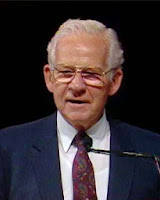"For you, my dear friends, the sky is the limit. You can be excellent in every way. You can be first class. There is no need for you to be a scrub. Respect yourself. Do not feel sorry for yourself. Do not dwell on unkind things others may say about you.... Polish and refine whatever talents the Lord has given you. Go forward in life with a twinkle in your eye and a smile on your face, but with great and strong purpose in your heart. Love life and look for its opportunities, and forever and always be loyal to the Church.
"Never forget that you came to earth as a child of the divine Father, with something of divinity in your very makeup. The Lord did not send you here to fail. He did not give you life to waste it. He bestowed upon you the gift of mortality that you might gain experience—positive, wonderful, purposeful experience—that will lead to life eternal."
- Gordon B. Hinckley, "How Can I Become the Woman of Whom I Dream?", Ensign, May 2001, pp. 93-95
Click here to read the full talk
 |
| Scrub Oaks on a Utah hillside |
When I lived on the east coast after graduating college, I discovered that oak trees can be massive, majestic, stunning specimens — living for hundreds of years and growing to impressive heights, their widespread branches offering shade and protection. This is the contrast, perhaps, that President Hinckley was pointing out. We each have the ability to be "first class" and come to realize that "the sky is the limit" as we learn to "be excellent in every way."
So the invitation from this remarkable man is to "love life" and know that God will sustain and bless us to ultimately succeed in every worthy way.

































